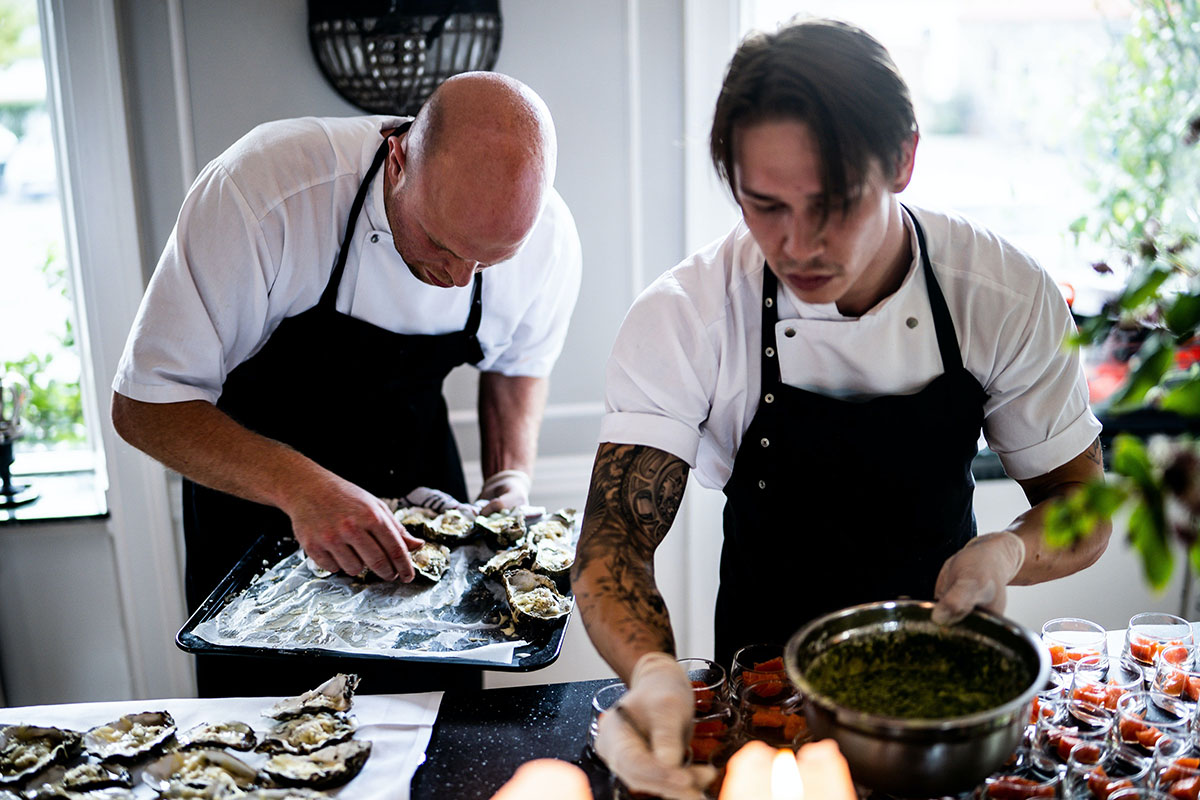Disclaimer: The information on our website is provided for general information purposes only. We make no representations or warranties of any kind, express or implied, about the completeness, accuracy, reliability, suitability or availability with respect to the website or the information contained on our website for any purpose. Any reliance on such information is therefore strictly at your own risk and we are not liable for any damages or losses arising out of or resulting from your reliance on any information contained on our website.
A caterer provides food service through delivered meals customized for each client’s request. They work in restaurants, mobile vendors, and personal businesses. Caterer’s hours vary and this career field is fast-paced with high pressure to deliver meals on time. If you have ever gone to a wedding reception, office party, or other social events and were impressed with the food, you can be sure that it was the work and skill of a caterer. A caterer can also be a chef. In fact, many chefs prefer getting into catering after years of cooking at a restaurant.
How to Become a Caterer

A high school diploma is typically needed to enter this career field. Many caterers get their associate’s degree from a community college or university in restaurant management, including business management courses, kitchen safety and sanitation, and cooking. An associate’s degree usually takes two years. Experience is the best way to gain employment, so working at various food service environments can help you land a job.
If owning a catering business, caterers must cover all legal requirements before working, such as their state’s liability insurance and business permits. Most states require food safety certification as well. Certifications are typically a short class followed by an exam.
Caterer Job Description
A restaurant caterer typically manages employees to assist in preparing and serving meals ordered by clients. All caterers store food at proper temperatures, keep cooking and serving areas clean, and replenish supplies. A catering company owner will also market their business to include maintaining their website presence and leveraging social media. Business owners must also network to build a solid clientele and establish relationships with their clients and with any vendors they use.
Although restaurants, vendors, and private caterers may work at different venues, they have other similar duties. Caterers typically begin their day early to prepare, shop, and set up the catered meal. They go over the client menu to ensure they have all ingredients and staff necessary to cook and deliver the meal. Some clients request special dietary meals for religious or health purposes. Caterers write warming instructions and directions on the dish to keep nutrients and flavor. They also cook, taste, and smell the food before delivery.
Caterers package the food and ensure temperatures are kept constant and safe for shipping. They oversee the set-up of the meal to ensure eye-appeal and food is in its designated station. They also oversee the staff and may perform office duties such as bookkeeping, payroll, and responding to client requests. Specific skills are needed to be a caterer, such as good communication to listen and understand the client’s request and communicate orally and in writing. They need excellent organizational skills to ensure everything goes according to plan and on time. A caterer needs to be detail-oriented and notice that everything required for the meal is available. They must also interact well with others, like clients and staff. If you like interacting with people and cooking great food, this may be your job!
Benefits of Being a Caterer
Catering offers immense job satisfaction, with many caterers relishing the creative freedom to tailor meals to suit different venues, whether it’s a wedding or a business luncheon. Clients entrust caterers with these details, allowing them to focus on other aspects of their event planning. Building connections within the community is another major advantage, as recommendations are essential in the catering industry. Forming new partnerships and friendships is invaluable. Owning a catering business means being your own boss, enabling you to choose your clients and set your work schedule. While higher education is optional in this field, taking business or culinary classes can broaden career opportunities and pave the way for advancement.

